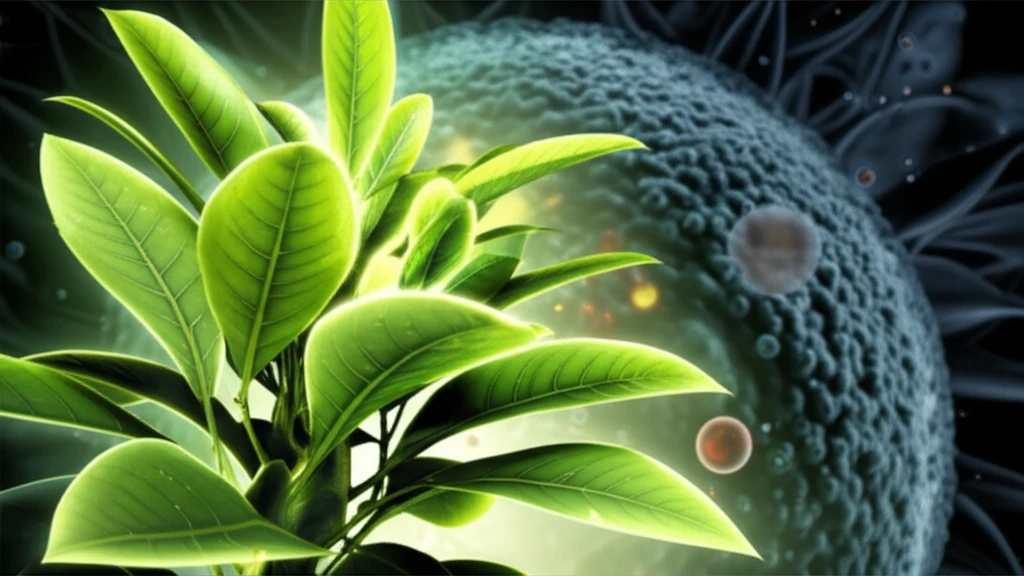
Can This Leaf Extract Fight Cancer? The Science Behind Croton gratissimus
"Unveiling the potential of Croton gratissimus leaf extracts as a natural weapon against cancer, backed by scientific research."
For centuries, traditional medicine has turned to nature's pharmacy, seeking remedies from the plant kingdom. Among these, the Croton genus stands out, boasting a rich history of medicinal applications across various cultures. From soothing inflammation to tackling parasitic infections, Croton species have long been valued for their therapeutic properties.
Modern science is now beginning to unravel the mysteries behind these traditional uses, with researchers investigating the potential of Croton extracts to combat a range of ailments. One area of particular interest is the plant's potential in cancer treatment, with studies exploring its antioxidant, anti-inflammatory, and cytotoxic effects.
A recent study published in BMC Complementary and Alternative Medicine has shed light on the promising anticancer properties of Croton gratissimus, a species native to tropical Africa. The research delves into the ability of leaf extracts from this plant to inhibit cancer cell growth, offering a glimmer of hope in the ongoing fight against this devastating disease. Here's a closer look at what the scientists discovered.
Croton gratissimus: A Triple Threat Against Cancer

The study, conducted by Emmanuel Mfotie Njoya, Jacobus N. Eloff, and Lyndy J. McGaw, focused on evaluating the antioxidant, anti-inflammatory, and cytotoxic properties of different extracts from three Croton species: C. gratissimus, C. pseudopulchellus, and C. sylvaticus. What set Croton gratissimus apart was its selective toxicity, meaning it targeted cancer cells while leaving healthy cells relatively unharmed.
- Selective Cytotoxicity: Acetone and ethanol extracts of C. gratissimus exhibited less toxicity to non-cancerous cells and were more selective against cancer cells.
- Antioxidant Activity: The extracts demonstrated good antioxidant properties, helping to combat oxidative stress, which is often implicated in cancer development.
- Anti-inflammatory Action: The extracts showed anti-inflammatory activity, further contributing to their potential therapeutic effects.
- Caspase Activation: The active extracts induced the activation of caspase-3 and -7 enzymes, which play a crucial role in programmed cell death (apoptosis) in cancer cells.
Looking Ahead: The Future of Croton gratissimus in Cancer Research
While the results of this study are encouraging, it's important to remember that this is just one piece of the puzzle. Further research is needed to fully understand the mechanisms of action of Croton gratissimus extracts, identify the specific compounds responsible for their anticancer effects, and evaluate their safety and efficacy in human clinical trials. However, this research provides a valuable foundation for future investigations and highlights the potential of natural remedies in the fight against cancer.
